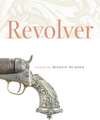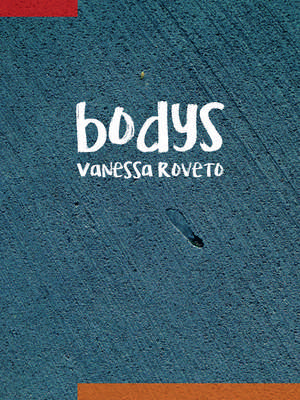bodys: Kuhl House Poets
Autor Vanessa Rovetoen Limba Engleză Paperback – 31 oct 2016
Vanessa Roveto’s debut collection, bodys, is a work of stunning strangeness, force, and audacity, generated by—and degenerating toward—the unanswerable question at the heart of poetic speech: What does it mean to be “a person?” A dizzying hybrid of poetry and prose, post-human analytics and ribaldry, spiritual autobiography, and grim satire, Roveto lends exacting voice to “a most complicated vocabulary of feeling-your-feelings.” Viscerally drawn to forbidden states and suspicious of its own desires, bodys is literature as high-risk, low-tech radiology, mapping the dim edges of identity and identification: “Brain scans indicated the moral center and the disgust center overlap on the mind field.”
Roveto’s sentences hurtle forward with withering disjunctive energy, laying down traps of wordplay, tacking toward and veering away from syntactical targets, trying-on and sloughing-off pronoun positions with abandon. Yet for all its postmodern bravado—and irreverence, and frequent scary hilarity—bodys remains abidingly attached to exploring the problem of a human speaker addressing itself to another, and colliding with its own otherness along the way. It is the same problem—articulation as disarticulation—that animates the great Renaissance sonnet sequences, from which bodys is affectionately, and perversely, descended. What is bodys—what are bodys—anyway? A dysfunction in the body’s ability to multiply itself? A dysmorphic take on the body’s sense of its reality? A dystopian vision of a world in which boundaries between selves and others have been overwhelmed by commerce, surveillance, medical technology, nihilistic agitprop? “Last night one of the girls asked about the relationship between a body and nobody,” Roveto writes. “It was the beautiful question.”
Roveto’s sentences hurtle forward with withering disjunctive energy, laying down traps of wordplay, tacking toward and veering away from syntactical targets, trying-on and sloughing-off pronoun positions with abandon. Yet for all its postmodern bravado—and irreverence, and frequent scary hilarity—bodys remains abidingly attached to exploring the problem of a human speaker addressing itself to another, and colliding with its own otherness along the way. It is the same problem—articulation as disarticulation—that animates the great Renaissance sonnet sequences, from which bodys is affectionately, and perversely, descended. What is bodys—what are bodys—anyway? A dysfunction in the body’s ability to multiply itself? A dysmorphic take on the body’s sense of its reality? A dystopian vision of a world in which boundaries between selves and others have been overwhelmed by commerce, surveillance, medical technology, nihilistic agitprop? “Last night one of the girls asked about the relationship between a body and nobody,” Roveto writes. “It was the beautiful question.”
Din seria Kuhl House Poets
-
 Preț: 128.22 lei
Preț: 128.22 lei -
 Preț: 101.06 lei
Preț: 101.06 lei -
 Preț: 101.69 lei
Preț: 101.69 lei -
 Preț: 119.64 lei
Preț: 119.64 lei -
 Preț: 118.58 lei
Preț: 118.58 lei -
 Preț: 150.22 lei
Preț: 150.22 lei -
 Preț: 117.76 lei
Preț: 117.76 lei -
 Preț: 118.92 lei
Preț: 118.92 lei -
 Preț: 120.08 lei
Preț: 120.08 lei -
 Preț: 118.03 lei
Preț: 118.03 lei -
 Preț: 118.92 lei
Preț: 118.92 lei -
 Preț: 125.54 lei
Preț: 125.54 lei -
 Preț: 133.04 lei
Preț: 133.04 lei -
 Preț: 131.69 lei
Preț: 131.69 lei -
 Preț: 131.62 lei
Preț: 131.62 lei -
 Preț: 134.67 lei
Preț: 134.67 lei -
 Preț: 134.23 lei
Preț: 134.23 lei -
 Preț: 144.49 lei
Preț: 144.49 lei -
 Preț: 144.93 lei
Preț: 144.93 lei -
 Preț: 136.91 lei
Preț: 136.91 lei -
 Preț: 136.43 lei
Preț: 136.43 lei -
 Preț: 145.58 lei
Preț: 145.58 lei -
 Preț: 153.64 lei
Preț: 153.64 lei -
 Preț: 153.38 lei
Preț: 153.38 lei -
 Preț: 146.12 lei
Preț: 146.12 lei -
 Preț: 98.77 lei
Preț: 98.77 lei -
 Preț: 153.38 lei
Preț: 153.38 lei
Preț: 144.49 lei
Nou
Puncte Express: 217
Preț estimativ în valută:
27.65€ • 28.94$ • 22.88£
27.65€ • 28.94$ • 22.88£
Carte indisponibilă temporar
Doresc să fiu notificat când acest titlu va fi disponibil:
Se trimite...
Preluare comenzi: 021 569.72.76
Specificații
ISBN-13: 9781609384555
ISBN-10: 1609384555
Pagini: 72
Dimensiuni: 152 x 203 x 10 mm
Greutate: 0.11 kg
Ediția:1
Editura: University of Iowa Press
Colecția University Of Iowa Press
Seria Kuhl House Poets
ISBN-10: 1609384555
Pagini: 72
Dimensiuni: 152 x 203 x 10 mm
Greutate: 0.11 kg
Ediția:1
Editura: University of Iowa Press
Colecția University Of Iowa Press
Seria Kuhl House Poets
Recenzii
“bodys is disturbed. Somewhere in its passage from cozy, imaginary singularity--a self-sufficient body, a body politic, a somebody--to the reality of its plural self, Roveto’s body of work lands in an in-between, stateless state in language, free and delirious, bound and undisciplined. “I asked to be taken to a rough place,” Roveto writes. What else does she ask? “For god’s sake, pussy, when did you become conscious?” bodys is a staggeringly audacious wake-up call to the numb soul. Not quite poetry or prose, cultural theory or pseudo-psychoanalytic case study or memoir, not merely a savagely funny satire of “I’m Scared culture” or an erotically desolate musing on the possibility of love or rapture, bodys is a dystopian, dyscombobulating, sonorously dyscordant anatomy of shared dysaster. Its sensibility is ancient and futuristic. There isn’t a boring or innocent sentence in the book. It is work of originating genius that puts the verse back in subversive, and bites the reader in the ass like no book I know.”—Mark Levine
“In this inventive and arrestingly funny debut, Roveto unequivocally makes the familiar strange as she places human bodies in a seemingly endless array of contexts to produce striking and even disturbing juxtapositions. Through imaginative poems linked by voice and theme, Roveto takes the spectacle of modern consumption and flips it all upside-down.”—starred review, Publishers Weekly
“This stunningly strange debut of poetry, a sequence of oddly off-kilter poems, reads like Mad Libs on acid and will stick to the inside of your skull. A refreshing, disarming collection, which includes the single most exquisite appearances of “jeggings” (leggings resembling jeans) in American poetry to date.”—Booklist
Notă biografică
Vanessa Roveto is a writer living in the San Fernando Valley. This is her first book.
Extras
Mom warned, Invest in everything together. She couldn’t
retire until I reproduced her efforts. Every evening Brother
visited in a family way. I was taught the value of commodity
from this action. A gallery performance that considered
many corpse painters at once. The traces of workers came
after Brothering. She washed his underpants or how seams
draw something out of another. That was not a sentence,
but a text in a frame. One question they snacked was, Could
your body next time supply napkin and platelets? It was a
show-off process. The speed at which I ruined coherence
increased because the investor met with the dollars of an
other’s patience. One example of being untitled is someone
willing to tell you their object choice is about you playing
yourself in relation to them as a face.
retire until I reproduced her efforts. Every evening Brother
visited in a family way. I was taught the value of commodity
from this action. A gallery performance that considered
many corpse painters at once. The traces of workers came
after Brothering. She washed his underpants or how seams
draw something out of another. That was not a sentence,
but a text in a frame. One question they snacked was, Could
your body next time supply napkin and platelets? It was a
show-off process. The speed at which I ruined coherence
increased because the investor met with the dollars of an
other’s patience. One example of being untitled is someone
willing to tell you their object choice is about you playing
yourself in relation to them as a face.
Descriere
Vanessa Roveto’s debut collection, bodys, is a work of stunning strangeness, force, and audacity, generated by—and degenerating toward—the unanswerable question at the heart of poetic speech: What does it mean to be “a person?” A dizzying hybrid of poetry and prose, post-human analytics and ribaldry, spiritual autobiography, and grim satire, Roveto lends exacting voice to “a most complicated vocabulary of feeling-your-feelings.” Viscerally drawn to forbidden states and suspicious of its own desires, bodys is literature as high-risk, low-tech radiology, mapping the dim edges of identity and identification: “Brain scans indicated the moral center and the disgust center overlap on the mind field.”
